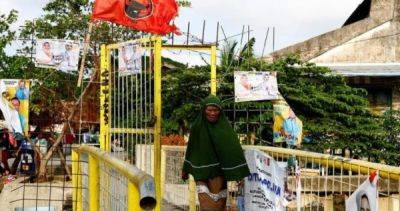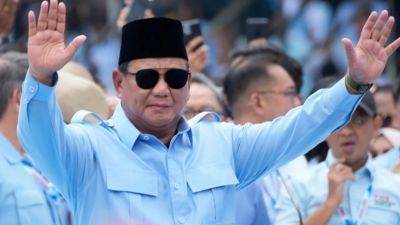Generative AI may change elections this year. Indonesia shows how
JAKARTA — Fika Juliana Putri, a 19-year-old shopkeeper in East Jakarta, plans to vote in Indonesia's presidential election next week for a once-feared former special forces commander. She likes him, she says, because he's cuddly.
A doe-eyed cartoon version of Gen. Prabowo Subianto — produced using generative AI — is emblazoned on billboards across Indonesia. It's reproduced on sweatshirts and stickers, and featured prominently on #Prabowo-tagged posts that have some 19 billion views on TikTok.
Prabowo is Indonesia's defence minister. But on social media, his chubby-cheeked AI avatar makes Korean-style finger hearts and cradles his beloved cat, Bobby, to the delight of Gen Z voters. About half of Indonesia's 205 million voters are under 40.
The general elections on Feb 14 in Indonesia, the world's third-largest democracy, offer a glimpse of how generative AI may transform large-scale political campaigning, experts say.
The AI-generated cartoon has been central to the electoral rebranding of Prabowo, who is far ahead in polls. Instead of portraying himself as a fiery nationalist, as he did in two prior failed presidential bids, the 72-year-old's new catchphrase is "gemoy" — which is Indonesian slang for cute and cuddly.
"I'll vote for him because he's gemoy," said Putri, a first-time voter. "That's the main reason."
Prabowo — and his doppelganger created using technology from US firm Midjourney Inc — is leading hundreds of candidates in using generative AI tools to create campaign art, track social media sentiment, build interactive chatbots, and target voters.
The Prabowo campaign and Midjourney, whose guidelines bar its use for political campaigning, did not respond to requests for comment.
"This is the first election





